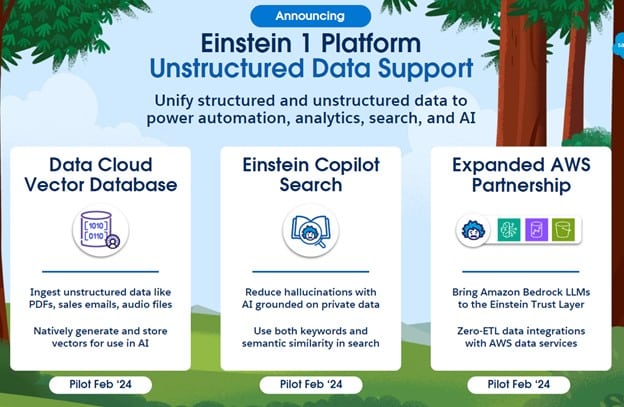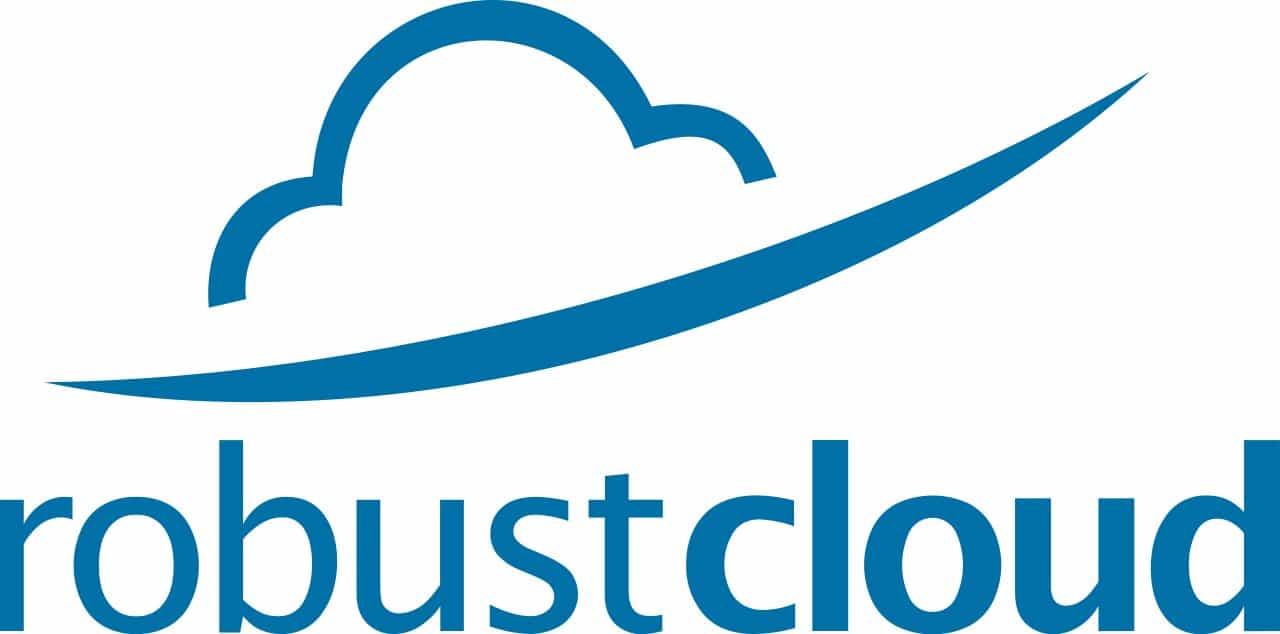
Generative AI at Salesforce
Salesforce is primarily a Software as a Service (SaaS) and Platform as a Service (PaaS) vendor. For SaaS, embedding Generative AI functionality applications immediately delivers capabilities like conversational AI to end-users. For PaaS, the ability to build Generative AI applications trained on customer data accelerates the ability of developers to create customer applications for their end-users.
The value of Generative AI comes from foundational models trained on large amounts of data. Uncontrolled data ingestion from open Internet sources can raise issues like Intellectual Property (IP) rights and biases from results. The New York Times recently filed a lawsuit against OpenAI and Microsoft over copyright infringement. These risks lead customers to choose vendors that deliver Generative AI value on models trained on private data. Using customer data helps decision-making and automation unique to each business situation. For example, models trained on enterprise knowledge bases can be used to determine customer sentiment accurately and recommend specific actions.
The underpinning of Salesforce’s AI strategy is the Salesforce Data Cloud, which processes massive volumes of data and connects billions of records daily to create unified customer profiles. This overcomes the challenges brought by islands of disconnected data into one source that allows AI to deliver a consistent experience. The Salesforce Data Cloud has an open ecosystem enabling customers to get their lake, like Snowflake or Databricks, or models from fully managed AI/ML platforms models, like Vertex AI and AWS Sagemaker on Google Cloud and AWS. In addition, Salesforce Data Cloud is integrated with first-party advertising like Meta and partner apps through AppExchange.
Unstructured Data in Einstein 1 platform
At the World Tour NYC, Salesforce announced two capabilities that enhance leveraging unstructured data described below.
The Data Cloud Vector Database: The Einstein 1 Platform brings together Data, AI, CRM, Development, and Security to facilitate the development of generative apps and automation. Data Cloud Vector Database will remove the need to fine-tune LLMs by using business data to enrich AI prompts. This allows customers to use diverse data types generally prevalent across their business. This could increase ROI on technology investments by having a single view of all of the enterprise’s structured and unstructured data (PDFs, emails, documents, and transcripts, with structured data, including purchase history, customer support cases, and product inventory) to power AI, automation, and analytics across applications. One example is boosting efficiency and improving customer satisfaction by presenting relevant knowledge to service agents.
These capabilities are easily applicable within the Salesforce ecosystem but can be extended to other applications using Salesforce’s integration capability through MuleSoft.
Einstein Copilot Search: Salesforce launched Einstein Copilot as an AI-powered assistant meant to be used across every Salesforce application with customization capability powered by Einstein Copilot Studio. Einstein Copilot Search, available along with Einstein Copilot in February 2024, will enhance AI search capabilities by sifting through diverse data sources. This will provide internal and external stakeholders with an AI assistant to solve problems by looking through real-time customer structured data and other relevant unstructured data. Depending on the usage, this will help realize greater internal efficiencies and higher customer satisfaction with an AI assistant that understands and addresses complex queries by accessing previously unattainable insights and knowledge. Einstein Copilot Search also provides citations to the source material. Salesforce’s Einstein Trust Layer builds trust and confidence in AI-generated content while maintaining data governance and security.
The Salesforce AWS partnership: Any AI offering requires a robust cloud infrastructure for support. Salesforce has a long collaboration with AWS, beginning in 2016 with an infrastructure partnership to support customer data sovereignty requirements. An expanded partnership was announced at Amazon’s re:Invent 2023 and reiterated at the World Tour in NYC that connects Salesforce’s Einstein, Data Cloud, Service Cloud, and Heroku to AWS services. Salesforce now leverages Amazon’s Bedrock through the Einstein Trust Layer. The Salesforce Data Cloud has zero-ETL data integrations with AWS data services like Amazon Athena, Amazon Aurora, and Amazon Redshift.
Summary
Since ChatGPT launched GPT- 3.5 in November 2022, Gen AI has garnered the mind share of the public and companies alike. Companies across the globe are looking for ways to infuse Gen AI into their business environment to increase employee productivity and improve customer satisfaction while growing revenue streams with new business models.
These Data Cloud and Einstein announcements will provide tools to existing Salesforce customers to integrate structured and unstructured data to develop new ways of combining and visualizing data. The expanded AWS partnership gives Salesforce new capabilities to meet customer requirements. But with solid business use cases, they might reach the hype curve. For these new offerings to find traction, Salesforce must quickly develop user scenarios by industry.
Ram Viswanathan, Consultant and ex-IBM Fellow, contributed to this blog post.
